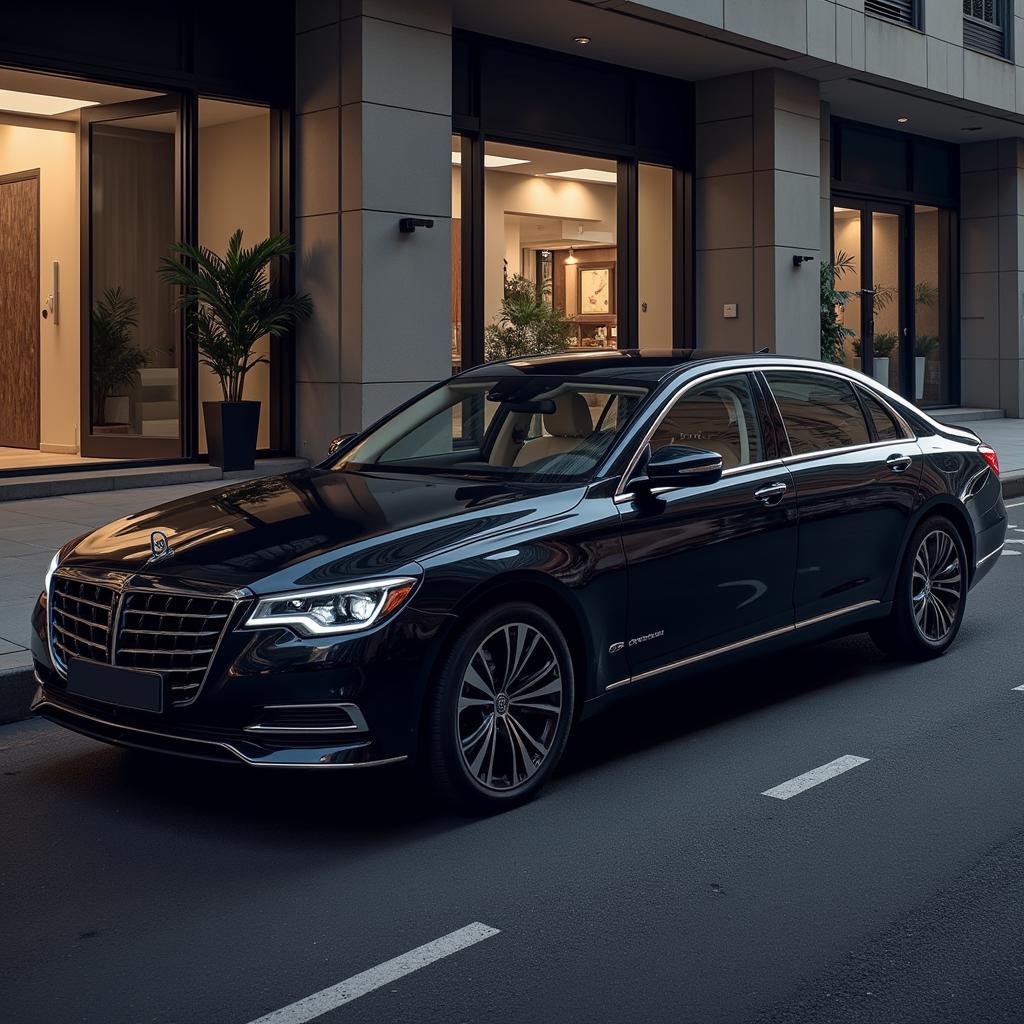The term “full size car” often evokes images of spacious sedans and hefty SUVs, conjuring thoughts of comfortable family road trips and the capacity to handle anything life throws your way. But in a market flooded with options, how do you decipher what “full size” truly means and which vehicle aligns best with your specific needs? This comprehensive guide delves into the world of full size cars, equipping you with the knowledge to make an informed decision.
Defining “Full Size” – More Than Just Dimensions
While “full size” might seem self-explanatory, the classification extends beyond mere physical size. It encompasses a range of factors, including:
- Passenger Capacity: Typically accommodating five to seven passengers comfortably.
- Cargo Space: Offering ample room for luggage, groceries, or sporting equipment.
- Engine Size and Power: Often equipped with larger engines, translating to greater horsepower and towing capacity.
- Features and Amenities: Full-size cars generally boast a higher level of standard features and offer a wider array of luxury and technology options.
Full Size Cars: A Spectrum of Choices
The full-size car segment is far from monolithic. Let’s break down the prominent categories:
1. Full-Size Sedans:
These classic four-door cars prioritize passenger comfort and a smooth ride. Think spacious interiors, plush seating, and a focus on a refined driving experience.
 Example of a Full-Size Sedan
Example of a Full-Size Sedan
Pros:
- Smooth and comfortable ride quality
- Spacious backseat legroom and headroom
- Large trunk space
- Often available with powerful engine options
Cons:
- Not as fuel-efficient as smaller sedans
- Can be more expensive than compact or mid-size alternatives
- May not be as maneuverable in tight spaces
2. Full-Size SUVs:
The go-to choice for families on the go, full-size SUVs deliver on space, versatility, and capability. Three rows of seating are standard, and they can tow significant weight, making them ideal for hauling boats or trailers.
Pros:
- Abundant passenger and cargo space
- Powerful engine options for towing and hauling
- Available with four-wheel drive for enhanced traction
- High driving position offers commanding road visibility
Cons:
- Lower fuel economy compared to smaller SUVs
- Can be more challenging to maneuver and park
- Higher starting price point
3. Full-Size Trucks:
Built for work and play, full-size trucks are the epitome of rugged capability. They offer impressive payload and towing capacities, along with off-road prowess.
Pros:
- Unmatched towing and hauling capabilities
- Durable construction
- Available with a wide range of configurations and features
- Powerful engine options
Cons:
- Lowest fuel economy among full-size car categories
- Can be difficult to maneuver in urban environments
- Higher starting price compared to some SUVs and sedans
Choosing the Right Full-Size Car for You
Selecting the ideal full-size vehicle hinges on understanding your unique needs and priorities. Consider these factors:
- Budget: Establish a realistic price range, factoring in not just the purchase price but also insurance, fuel costs, and potential maintenance.
- Lifestyle: Do you frequently transport passengers? Do you need significant cargo space? Will you be towing?
- Driving Habits: Where do you primarily drive – city streets or open highways? Do you require off-road capability?
The DiagXcar Advantage: Your Guide to Informed Decisions
Navigating the vast landscape of full-size cars can be overwhelming. This is where DiagXcar comes in. Our website provides comprehensive reviews, expert insights, and the latest information on cars kia suv and other full-size vehicles. We empower you to make informed decisions aligned with your individual needs and preferences.
Full-Size Cars: Beyond the Badge – What Matters Most
While brand reputation and specific model features are crucial, certain universal aspects significantly impact your ownership experience.
- Reliability: Research a vehicle’s track record for dependability.
- Safety Features: Prioritize models with advanced safety technology.
- Resale Value: Consider a vehicle’s projected resale value, which can influence long-term ownership costs.
Conclusion: Your Full-Size Car Journey Starts Now
The world of full-size cars offers a diverse range of vehicles, each catering to specific needs and desires. By carefully evaluating your priorities and leveraging the resources available on DiagXcar, you can confidently embark on your journey to finding the perfect full-size car to fit your lifestyle.
FAQs
-
What is considered good gas mileage for a full-size car?
Fuel efficiency varies greatly. Look for models exceeding 25 mpg on the highway for better efficiency.
-
Are full-size cars expensive to maintain?
Maintenance costs can be higher due to larger parts and specialized service requirements.
-
What is the best full-size car for families?
Full-size SUVs often top the list for family-friendliness due to their spaciousness and versatility.
-
Do all full-size cars come with three rows of seating?
While common in SUVs, three-row seating isn’t standard in all full-size cars. Sedans and trucks typically offer two rows.
-
Are full-size cars difficult to drive and park?
Their larger size can make maneuvering in tight spaces more challenging. Features like parking sensors and rearview cameras can assist.
Need help finding the perfect full-size car for you? DiagXcar can help! Contact us via WhatsApp at +1(641)206-8880, email us at [email protected], or visit us at 276 Reock St, City of Orange, NJ 07050, United States. Our team is available 24/7 to answer your questions.
Explore more articles on car detail near me, navy federal car refinance, working cars for working families nebraska, and odyssey car to enhance your car buying and ownership journey.


